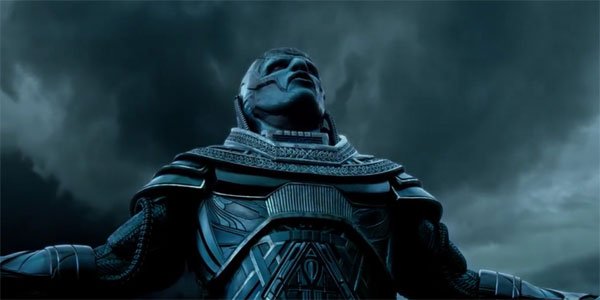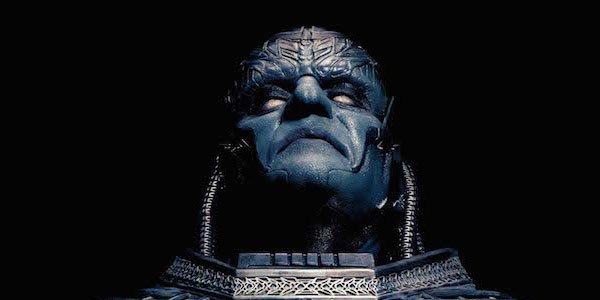Did Days Of Future Past Cause The Awakening Of Apocalypse? X-Men's Director Explains

Your Daily Blend of Entertainment News
You are now subscribed
Your newsletter sign-up was successful
As things currently stand, there are two distinct timelines in the live-action X-Men franchise. The split was caused by the finale of X-Men: Days of Future Past, which altered the course of history after 1973, rendering everything after that point as being separate from what came before it (including the events of the original trilogy and both Wolverine films). Now, audiences can see a brand new adventure set in the post-Days of Future Past timeline, featuring the rise of the all-powerful mutant known as Apocalypse in the year 1983. This leaves us with a very important question: is it possible that the dangerous blue mutant also rose in the original timeline, and was simply never mentioned?
I recently posed this very query to director Bryan Singer, who explained with using theories in quantum physics that the resurrection of the titular villain in X-Men: Apocalypse is a first-time event. I had the pleasure of sitting down with Singer at the X-Men: Apocalypse junket in London, England and right out the gate I asked about whether or not the original X-Men timeline ever saw the return of The First Mutant. The filmmaker didn’t give me a straight yes or no answer, but instead basically explained that Apocalypse’s return in the upcoming movie is a monumental event that both only takes place on the new timeline, and actually distances it from the old timeline. Said Singer,
We play with time in Days of Future Past in a sense where there’s immutability of time – which is time kind of gathering itself after being disrupted. Then there’s the disruption of time, which enables us to have a lot of freedom in future films.But my feeling is, there’s also theories in physics, quantum physics, about parallel timelines. So I look at the conclusion of the last movie, and I look at Apocalypse’s arrival as yet another disruption in the timeline that we’ve come familiar with over the history of the films. How do I explain it? Well, maybe see another movie, [and] we’ll figure that out. Maybe that will be the plot of the next one! Maybe we just came up with it right here!
When looked at from a cause-and-effect point of view, this does make a fair amount of sense. At the end of X-Men: Days of Future Past, Mystique doesn’t kill Bolivar Trask in 1973, and stops a devastating war-and-Sentinel-filled future from ever coming to pass… but this isn’t the only consequence of that event. It also has the effect of exposing the existence of mutants to the entire world at an earlier point in the timeline, and over the next 10 years actually leads to a fair amount of acceptance for them within society. Unfortunately, it’s this same pro-mutant perspective that leads a cult to discover the existence of Apocalypse, and resurrect him in 1983. Without that societal sentiment, however, it’s entirely likely that the First Mutant was never discovered, thus was never awoken – which means that his rise in X-Men: Apocalypse is actually an event that further "disrupts" the new timeline and actually additionally distances it from the original timeline.

Is this all a bit confusing and complex? Absolutely – but it’s also part of what makes science-fiction so much fun to think about and discuss. From Bryan Singer’s comments, it certainly doesn’t sound like the franchise is done playing around with these massive ideas either, so hopefully it will continue to cause a lot of fun discussions amongst fans for many years to come.
X-Men: Apocalypse arrives in theaters this weekend.
Your Daily Blend of Entertainment News

Eric Eisenberg is the Assistant Managing Editor at CinemaBlend. After graduating Boston University and earning a bachelor’s degree in journalism, he took a part-time job as a staff writer for CinemaBlend, and after six months was offered the opportunity to move to Los Angeles and take on a newly created West Coast Editor position. Over a decade later, he's continuing to advance his interests and expertise. In addition to conducting filmmaker interviews and contributing to the news and feature content of the site, Eric also oversees the Movie Reviews section, writes the the weekend box office report (published Sundays), and is the site's resident Stephen King expert. He has two King-related columns.
